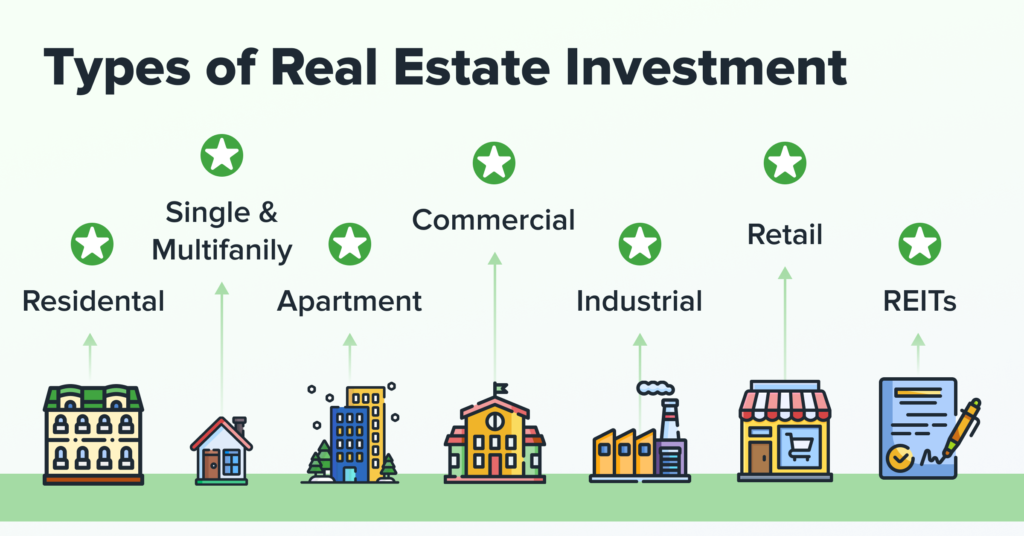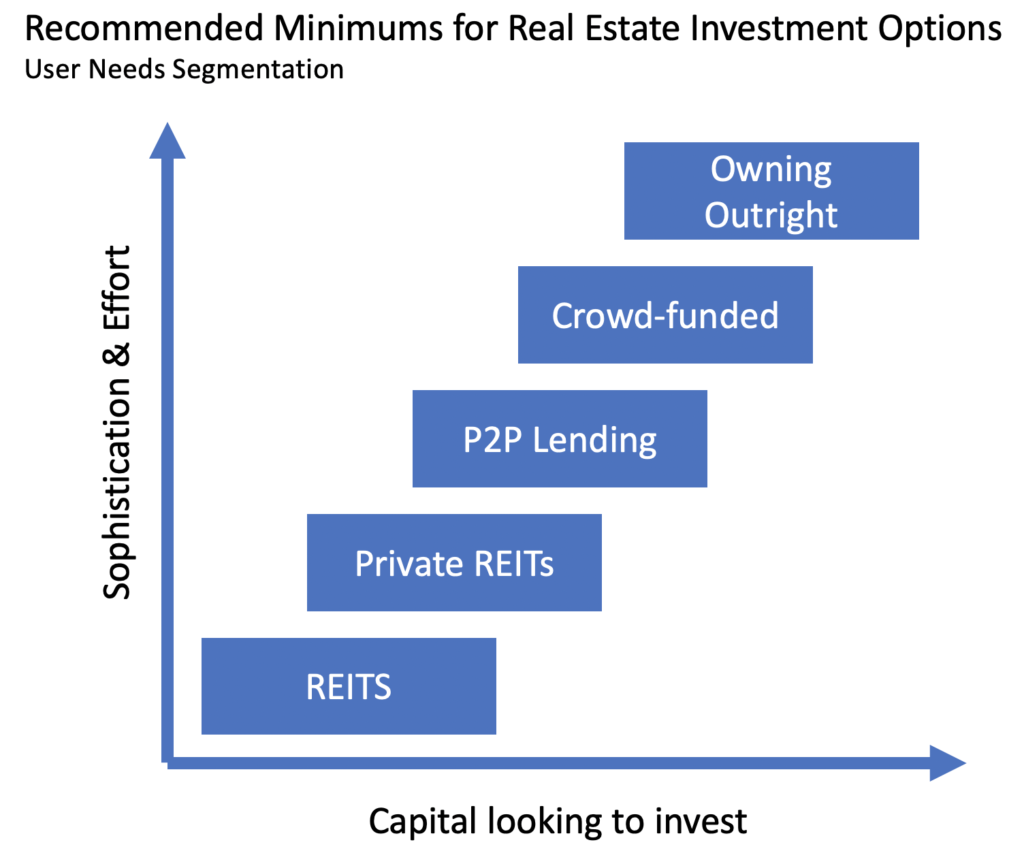Real estate investing for beginners can feel intimidating, but it’s one of the most reliable ways to build wealth and secure a steady stream of passive income. Whether you’re looking to flip houses for quick profits or invest in rental properties for long-term gains, understanding the basics is essential. In this guide, we’ll walk you through the fundamental steps of real estate investing, breaking down complex concepts into easy-to-follow advice that will help you get started with confidence.
Table of Contents
What is Real Estate Investing?
Real estate investing involves purchasing, owning, managing, or selling real estate to make a profit. Unlike stocks or bonds, real estate is a tangible asset, meaning you can physically own and manage properties. There are several ways beginners can invest in real estate, including:
- Rental Properties: Owning properties that you rent out to tenants for monthly income.
- House Flipping: Buying homes that need renovation, fixing them up, and selling them for a profit.
- Real Estate Investment Trusts (REITs): Investing in companies that own, operate, or finance income-producing real estate.
- Real Estate Crowdfunding: Pooling money with other investors to fund large real estate projects.

Why Real Estate Investing is Great for Beginners
Real estate is an attractive investment for beginners for several reasons:
- Passive Income: Rental properties provide steady monthly cash flow.
- Appreciation: Property values tend to increase over time, offering the potential for long-term profit.
- Diversification: Real estate offers an alternative to stocks and bonds, reducing overall investment risk.
- Leverage: You can borrow money (mortgages) to buy property, allowing you to control large assets with relatively little upfront capital.
- Tax Benefits: You can deduct expenses like property taxes, mortgage interest, and repairs, which can lower your taxable income.
Step-by-Step Guide to Real Estate Investing for Beginners
1. Set Clear Investment Goals
Before starting your journey into real estate investing, you must identify your goals. Are you looking for short-term profits from flipping houses, or are you more interested in long-term passive income from rental properties? Setting clear goals helps you choose the right investment strategy.
- Long-term goals: You may want to invest in rental properties that generate consistent cash flow over time.
- Short-term goals: You could focus on house flipping for quicker profits but with potentially higher risks.
2. Understand Your Financing Options
Financing is one of the most important aspects of real estate investing. As a beginner, you have several options for funding your investments:
- Traditional Mortgages: The most common financing method, where you pay a down payment (usually 20%) and finance the rest through a bank.
- Hard Money Loans: Short-term loans provided by private lenders, typically used for house flipping.
- Private Money Lenders: Borrowing from individuals (friends, family, or private investors) instead of institutions.
When starting, it’s essential to assess your credit, savings, and income to determine what financing options are feasible for you.

3. Research the Market Thoroughly
Real estate investing is all about location. A great property in the wrong market can still be a bad investment. When you’re just starting, focus on understanding:
- Property Prices: Are property values in your chosen market rising or falling?
- Rental Demand: Are there enough potential tenants in the area to ensure occupancy?
- Local Economy: Is the job market growing? Are businesses moving into or out of the area?
- Neighborhood: Look for areas with good schools, low crime rates, and growing infrastructure.
Tools like Zillow, Realtor.com, and local real estate forums can give you insight into the current market conditions.
4. Start Small and Scale Over Time
As a beginner, it’s best to start with a manageable investment, such as a single-family home or small multi-family property. These types of properties are easier to finance, manage, and maintain compared to larger commercial properties.
- Single-Family Homes: Great for first-time investors. Easier to manage and less costly to purchase.
- Small Multi-Family Units (Duplexes or Triplexes): A solid option for generating higher rental income without too much added complexity.

Once you gain experience, you can start scaling by adding more properties to your portfolio or upgrading to larger real estate deals.
5. Learn About Property Management
Managing a property might seem overwhelming, but it’s an essential part of being a real estate investor. You can either:
- Self-Manage: Take care of day-to-day operations like finding tenants, collecting rent, and handling maintenance issues.
- Hire a Property Manager: Property management companies take care of these tasks for you, but they charge a fee (usually 8-12% of your rental income).
As a beginner, you might consider self-managing your first property to learn the ins and outs, and eventually, you can hire a property manager as you scale.
6. Consider Real Estate Crowdfunding or REITs
For beginners with limited funds or time, real estate crowdfunding and REITs are excellent entry points into real estate investing:
- REITs: You can buy shares in a real estate investment trust, which gives you exposure to commercial properties without owning them directly.
- Real Estate Crowdfunding: Platforms like Fundrise allow you to invest in large-scale real estate projects by pooling funds with other investors.
These options are ideal if you want to diversify your portfolio without managing properties directly.
7. Calculate Your ROI and Know Your Numbers
Before purchasing a property, it’s crucial to run the numbers and calculate your expected return on investment (ROI). The key figures to consider include:
- Cash Flow: Monthly rental income minus expenses like mortgage payments, property taxes, and maintenance costs.
- Cap Rate: A formula that helps estimate the potential return on a property based on its net operating income (NOI) and current market value.

- Appreciation: Expected increase in property value over time.
For beginners, it’s important to invest in properties with positive cash flow and favorable appreciation prospects.
How The Business Credit Builder Can Help You with Real Estate Investing
When starting out in real estate investing, access to capital is one of the biggest hurdles. This is where The Business Credit Builder comes in. It’s a powerful tool designed to help you build and establish business credit, giving you access to funding without relying on personal credit or risking your personal assets.
By building strong business credit, you can secure loans, credit lines, and other financial resources needed for your real estate investments. Whether you’re purchasing rental properties or funding a house flip, having access to business credit can make the difference between closing a deal and missing out on an opportunity.
Here’s how The Business Credit Builder helps:
- Establish Your Business Entity: It guides you through setting up a legal business structure, which is essential for building business credit.
- Separate Personal and Business Finances: It helps you keep your personal credit protected by establishing credit under your business.
- Access High Credit Limits: As your business credit grows, you’ll be able to qualify for larger loans and credit lines, giving you more buying power in the real estate market.
- Improve Cash Flow: With easier access to capital, you can manage cash flow more effectively, ensuring you have the funds for down payments, renovations, and unexpected expenses.
Ready to take your real estate investing to the next level? Get started with The Business Credit Builder today and unlock the financial freedom to grow your real estate portfolio. [Click here to learn more and begin building your business credit now!]
Conclusion: Real Estate Investing for Beginners
Real estate investing is a proven way to build wealth, create passive income, and achieve financial freedom. While it may seem overwhelming for beginners, starting small and taking strategic steps can lead to long-term success. By setting clear goals, understanding your financing options, researching the market, and choosing manageable investment properties, you’ll be well on your way to becoming a successful real estate investor.
Remember, real estate is a marathon, not a sprint. Take the time to learn, make informed decisions, and gradually scale your investments as your experience grows. Whether you start with rental properties, REITs, or house flipping, each path offers unique opportunities. With patience and persistence, real estate can help you achieve your financial goals.
If you’re ready to take the plunge, start by identifying a market, securing your financing, and making your first investment. It’s the first step toward building a diversified and lucrative investment portfolio.
Affiliate Disclaimer: Some of the links in this article are affiliate links, which means I may earn a commission if you click on the link and make a purchase. Please note that I only recommend products or services that I genuinely believe in and have personally experienced. Your purchase helps support my work in providing valuable content to readers like you. Thank you for your support!




